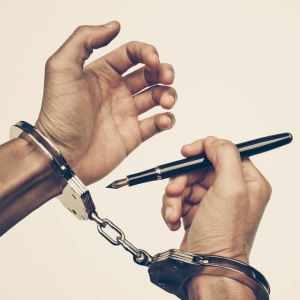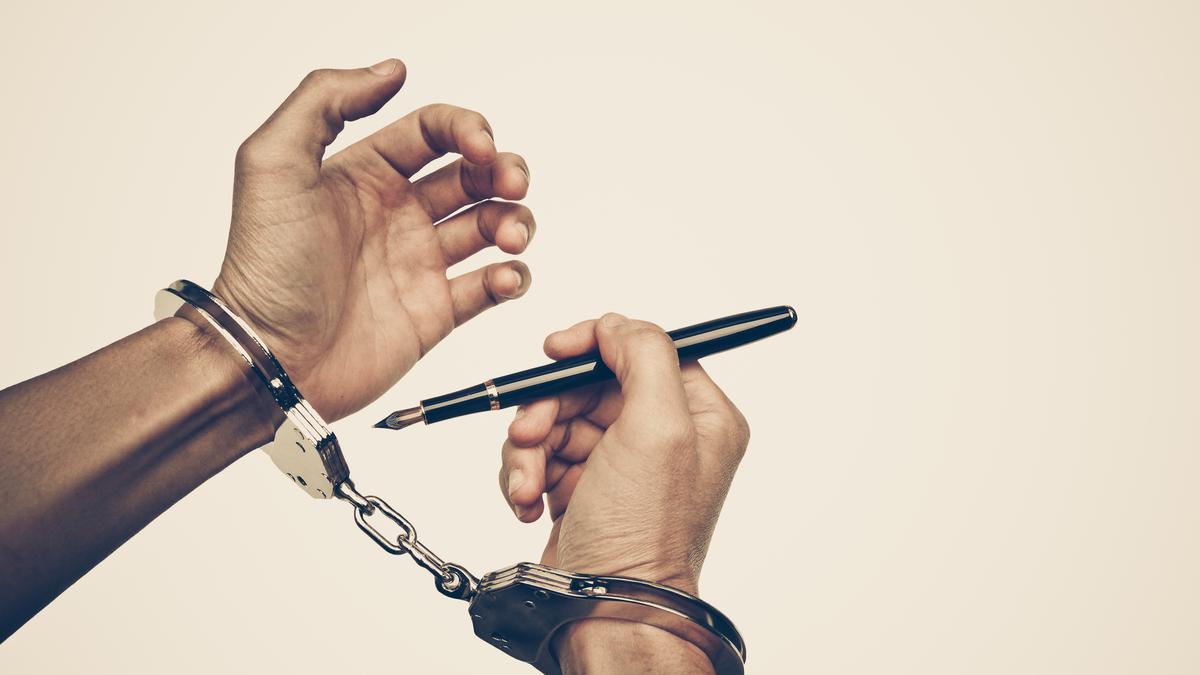
.jpg) Sacaria Joseph
Sacaria Joseph

The Bengali newspaper Bartaman's motto, "We will not fear anyone other than God, and we will not become sycophants to anyone," reflects their unwavering commitment to journalistic integrity. This powerfully principled statement emphasises their fearlessness in reporting the truth, regardless of who it might offend. Their refusal to become 'sycophants' underlines their dedication to independent thought and unbiased reporting, which are the cornerstones of good journalism. Operation 136 proved that they walked the talk.
In 2018, Cobrapost, a non-profit Indian news website, initiated a sting operation nicknamed Operation 136, referencing India's placement in the 2017 World Press Freedom Index. The objective of the operation was to unveil the extent to which Indian media outlets were willing to sacrifice their journalistic principles in exchange for financial benefits, particularly by endorsing the Hindutva political ideology.
Undercover agents approached media houses, presenting themselves as representatives of a wealthy but unnamed ashram and members of the Rashtriya Swayamsevak Sangh (RSS). Operating under the fictional identity of Acharya Atal, journalist Pushp Sharma engaged them in discussions regarding the necessity for the continuous dominance of the Bharatiya Janata Party (BJP) in Indian politics. Sharma proposed the dissemination of Hindutva propaganda through advertorials across various media platforms in exchange for a predetermined payment.
The operation was designed to unfold in phases. The initial phase was to focus on promoting 'soft Hindutva,' emphasising Hindu faith and values as inseparable from Indian identity. This phase entailed imparting Lord Krishna's teachings and narrating tales from Hindu mythology. Subsequently, the operation was to transition to a stage involving satirical attacks on political adversaries of the BJP, including Rahul Gandhi, Mayawati, and Akhilesh Yadav. Finally, it was to escalate to the dissemination of inflammatory speeches by staunch proponents of Hindutva, aiming to fuel communal tensions and sway the outcome of the 2019 general elections in favour of the BJP.
Out of the 27 media houses approached, 25 accepted the proposal, with a significant number even committing to forming dedicated teams to execute the suggested programme to further the cause of the BJP. Two glows of integrity amidst this unfortunate compromise of journalistic ethics came from representatives of two Bengali newspapers, Bartaman and Dainik Sambad, who chose to reject the agents' propositions outrightly.
What was particularly alarming were recordings of discussions within several media houses regarding the execution of transactions amounting to hundreds of crores of rupees using black money. Shockingly, some even suggested methods to funnel black money through other business entities and families. Operation 136 not only exposed the ethical deficiencies prevalent in India's media sector but also shed light on the political coercion influencing media operations.
Free media serves as the cornerstone of a healthy democracy. By offering evidence-based reporting and a wide range of perspectives, it fosters open dialogue, enriches public discourse, and encourages critical thinking. This, in turn, stimulates informed decision-making, empowers citizens, and strengthens democratic structures. Moreover, the media serves as a vigilant watchdog, exposing transgressions and advocating for transparency, thereby cultivating an enlightened and engaged populace while championing effective governance.
The freedom of media in India, enshrined in Article 19(1) (a) of the Constitution, serves as a fundamental right protecting free speech and ex
These challenges are not new to the Indian media landscape. On June 25, 1975, then Prime Minister Indira Gandhi's declaration of "imminent security threats" to the country led to the imposition of a state of Emergency, resulting in the suspension of civil liberties, curtailment of press freedom, and suppression of democratic rights. During this period, newspapers were subjected to raids, journalists were arrested, and strict censorship measures were enforced, requiring prior approval from the Chief Press Advisor for all published content.
However, amidst this atmosphere of repression, there were significant instances of defiance that underscored the resilience of the media. One such instance occurred on June 28, 1975, when the Mumbai edition of the Times of India published a cryptic 22-word obituary. Crafted by journalist Ashok Mahadevan, it mournfully announced, "O'Cracy, D.E.M., beloved husband of T. Ruth, loving father of L.I. Bertie, brother of Faith, Hope, and Justicia, expired on June 26." This symbolic message, representing democracy itself, served as a poignant critique of the Emergency era, highlighting the erosion of civil liberties. Similarly, on the same day, The Indian Express ran a blank editorial, symbolising the silence imposed on the media by censorship. These acts of defiance demonstrated the media's role as a vigilant guardian of society, even in the face of severe repression. These were powerful instances of media assuming the role of the watchdog of society.
In his poem "The Press," Rudyard Kipling celebrates the press as a powerful watchdog diligently guarding against potential abuses by authority figures in society. He emphasises the crucial role of the media in uncovering the truth and ensuring accountability among those in power despite facing opposition.
The Pope may launch his Interdict,
The Union it's decree,
But the bubble is blown and the bubble is pricked
By Us and such as We.
Remember the battle and stand aside
While Thrones and Powers confess
That King over all the children of pride
Is the Press - the Press - the Press!
The journalist narrator, representing the press, dismisses the weight of powerful pronouncements, whether from religious leaders or government officials, as mere hot air waiting to be punctured. He asserts that journalists possess the ability to uncover and question these declarations, thereby holding even the most influential individuals accountable. Encouraging the public to observe the ongoing battle between the press and established authorities, he predicts that those in positions of power will ultimately acknowledge the press as the supreme authority capable of holding even the "children of pride" (those in power) accountable.
Despite Kipling's celebration of the media's power, in environments where media faces extensive control, there exists a risk of it abandoning its watchdog role and instead becoming compliant with authority, akin to a lapdog. By forsaking their responsibilities as analysts, scrutineers, and critics, media outlets may align with governmental interests, sacrificing their independence. Rather than holding the government accountable, they may propagate official narratives, allowing hidden agendas, conflicts of interest, and corruption to flourish unchallenged. Such collaboration not only erodes journalistic integrity but also sustains and legitimises misconduct within government spheres.
Operation 136 revealed the alarming inclination of several Indian watchdogs to transform into lapdogs, with many succumbing to this trend. Ravish Kumar, a former NDTV journalist, coined the term 'Godi Media,' referring to these transformed lapdogs collectively. Kumar employed this term to critique certain Indian media channels for their biased coverage during the 2014 general election, where they disproportionately emphasised the BJP and its leaders without offering fair and balanced reporting on the elections.
Since its introduction, the term 'Godi Media' has been employed to characterise media outlets perceived as compliant or subservient mouthpieces, particularly those aligned with the National Democratic Alliance (NDA) government, more importantly, the BJP, since 2004. The term implies that these media organisations function more as loyal supporters or 'lapdogs' rather than independent watchdogs scrutinising and critiquing those in power.
With Narendra Modi assuming office as Prime Minister of India, a significant transformation has unfolded in the country's media landscape. This shift has sparked concerns regarding the erosion of press freedom and the consolidation of government control over information dissemination. Under his leadership, a significant section of Indian media underwent a metamorphosis from vigilant watchdogs to propagandist lapdogs, marking the decline of freedom and integrity within the industry. This transformation is facilitated by governmental tendencies towards authoritarianism characterised by centralised control, suppression of criticism, opposition, and dissent, as well as control over and taming of the media. These actions align with fascist methods used to ensure a grip on power, further undermining India's democratic fabric.
Over the past decade, Indian newsrooms have witnessed profound changes, largely influenced by the country's affluent media barons, many of whom maintain close connections with the ruling party and rely heavily on government advertising revenue. Businessmen such as Gautam Adani and Mukesh Ambani, whose business interests align closely with the government, have been steadily acquiring media outlets, thus exerting considerable influence over the information disseminated to the public.
Adani's recent acquisition of New Delhi Television Ltd. (NDTV) and Indo-Asian News Service is perceived as a strategic move to align the media industry more closely with the government's agenda, serving their own business interests. This symbiotic relationship between media barons and the ruling party has been reshaping and controlling India's media landscape.
Furthermore, the media sector's dependence on government advertising revenue has significantly eroded press freedom. The government's ability to manipulate the allocation of advertising revenue has emerged as a powerful tool for controlling the media narrative. Consequently, these developments have had significant consequences, including the resignation of several senior journalists from NDTV following directives to avoid stories that might implicate government allies.
Such a media environment fosters the emergence of 'Godi Media' outlets closely aligned with the government. With access to power and business favours, 'Godi Media' prioritise reporting that serves the government's interests, further stifling dissenting voices and critical journalism. Therefore, it is not surprising that India ranks 161 out of 180 countries in the 2023 World Press Freedom Index.
In India, a cadre of independent journalists on YouTube, many of whom have moved away from mainstream media, are actively challenging the prevailing narratives perpetuated by pro-government 'Godi Media' outlets. These YouTubers have garnered substantial followings, with some channels amassing millions of subscribers and billions of views. Indian government's proposed Broadcasting Services (Regulation) Bill 2023 poses a looming threat to the autonomy of these independent voices. If enacted, this bill could potentially restrict the ability of independent YouTubers to operate without undue influence or censorship.
While YouTube journalism serves as a vital platform offering an alternative to the biased coverage often found in mainstream 'godi media' news, it also disseminates a considerable amount of misinformation, especially during election periods.
Urgent reforms are required to preserve the freedom and integrity of Indian media to ensure the nation's democratic fabric. Safeguarding media freedom and integrity calls for concerted efforts on multiple fronts. It requires political will to enact reforms that protect and promote press freedom, judicial action to uphold constitutional rights and prevent abuse of power, and media solidarity to collectively resist censorship and intimidation.